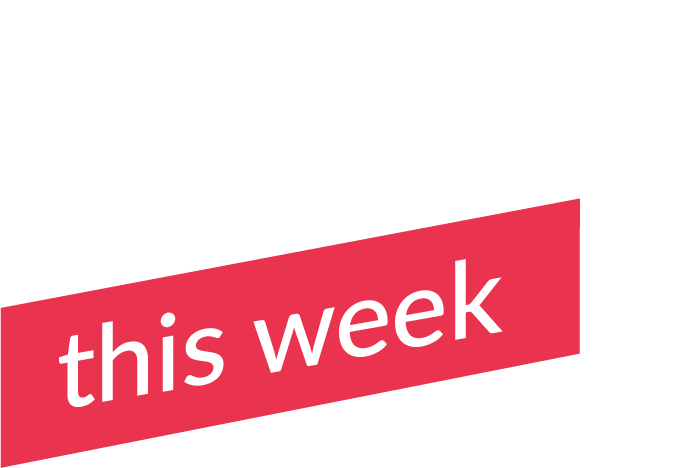Top of mind: Happy Monday!
In the famous, paraphrased words of philosopher Shawn Corey Carter, professionally known as Jay Z – “If you’re having web problems, I feel bad for you, son. I got 99 problems, but AI ain’t one.”
Artificial Intelligence (AI) is the latest technology to rake in billion-dollar investments from big tech companies. And if you’re wondering, “Nah, I can’t jump on another fad like NFTs”, I promise you, AI is not in that category.
This two-lettered beast will significantly influence our lives. The industry is also sprouting “sex-tech AI pioneers” that manufacture vibrators using biofeedback and AI to help women have better orgasms. It’s a movement.
So, this week, we’re spotlighting some Africans on the cutting edge of AI and building world-class companies and systems.
Interviews are condensed for brevity. Let’s get to it.
Africa’s AI revolution takes centre stage

Meet the builders:
- Justin Irabor, a software engineer, built an AI study buddy called Kainene Vos Savant on Telegram. Kainene has now evolved into a full-blown product with 6000+ users.
- Richmond Alake: a machine learning engineer who builds next-level AI products like OpenSpeech – an audio-to-text AI automation tool that produced this article based on Lex Fridman and Sam Altman’s interview; and MiniPT, a fitness and health companion.
- Henry Mascot: founder of Curacel – an AI-powered insurance startup. His team uses AI technology to build modern insurance infrastructure in emerging markets.
Africa’s AI-powered solutions: Curacel uses predictive AI models to build faster processes for sorting complex data.
Henry: Our flagship product is a claims management and fraud detection system for insurance companies. For example, when a claim says someone had malaria and spent ₦200,000, our system knows if the treatments listed are relevant for malaria. So, we help insurance companies speed up the claims processing – this used to take a human five minutes to complete. Our AI-enabled system does it in 0.1 microseconds.
Kainene is a clever combination of the character from Chimamanda Adichie’s Half of a Yellow Sun (we still don’t know what happened to Kainene 👀) and Marilyn Vos Savant – who has the highest recorded IQ in the Guinness Book of Records.
With Kainene, Justin’s built the perfect virtual assistant to save you hours of mental effort.
Justin: Kainene is an MVP (minimum viable product). And in terms of proof of concept, going as far as engaging with the core audience has been a resounding success. People love it. After I push a code update, my emails get flooded within the next few minutes, and I’m like, wow, people are using this.
The popular use cases are folks using it as study and research assistants or distilling complex topics into summaries. I just launched audio prompts for queries, and my goal is to launch a new feature every month to keep up with AI’s evolution.
With OpenSpeech, Richmond is building a tool that helps you create insightful articles from audio recordings. The program understands context and can follow long, complex conversations – with minimal human editing.
OpenSpeech will be a game-changer for audio interviews.
Richmond: When we launch OpenSpeech, you’ll be able to take a recording, upload it, and get an article out of it – then, you can edit, and you won’t need a writer anymore.
Richmond says when we look back on human history, there are pivotal moments that changed the world – from the industrial revolution to World War II. He says November 30 2022, the day ChatGPT was launched, will be remembered as a moment that ushered in a significant shift in our lives.
Regarding AI’s impact on work culture, there’s consensus that AI IS COMING FOR YOUR JOBS JOBS JOBS.
Richmond: AI taking your job is not five years away. It’s happening now. Tech companies are laying off employees and citing AI as the reason. When you see too many humans working on something, there’s an opportunity for AI to disrupt that process and increase productivity. So, we are going to keep seeing a reduction in the workforce.
Henry: Engineering and customer service teams will be impacted. For customer service, you can pull your knowledge base, combine it with ChatGPT, and then reduce your customer service team by 50%. AI is changing everything.
AI is also setting its sights on the fitness market, Richmond’s new startup – MiniPT, is an AI-powered personal trainer.
Richmond: All you need to do is open your camera and place your phone somewhere close. MiniPT watches your joints and form and gives you real-time feedback. So let’s say you’re squatting and going too low. It will tell you you you’re going too low. Then, after you’re done with the workout, it will generate a program, send you a report, and give you feedback and video playback.
According to an article on ABC News, people are falling in love with AI assistants. Big Tech This Week learnt that a gentleman outsourced responding to his mother’s texts to an AI bot, and he’s now training the model to learn how he communicates with his girlfriend via text, so he could also outsource this to his AI bot. Good luck to him.
Africans are rapidly adopting AI on different levels and are using AI-powered products to boost their productivity for specific tasks.
Justin: Big corporations use it to streamline their operations and make everything run like clockwork. Kainene is a hit with people like myself who combine work and studies. I built Kainene to support me as I completed my Master’s program and did my day job, and now people are becoming super users and splitting the costs with me to cover OpenAI and server costs.
With AI’s rapid evolution, where are the regulators?
Henry: Some markets like Nigeria and Kenya are ahead of the curve in digital innovation, and the technology is evolving quickly. Regulation will be important in guiding expansion across markets.
Richmond: Regulation is always behind technology. AI is moving fast, so some people are calling for a pause, but I don’t think we can pause it. We need a team of brilliant people to get together, think ahead, and create the regulation. We will only conquer AI by building AIs that police other AI.
Final thoughts: AI is driving a new wave of life for humans. It will disrupt how we work, live, and interact with each other. So, exploring how AI can improve and optimise your life is sound advice.
The space is seeing an exciting amount of innovation, and startups that come out on top will create a new wave of unicorns and tech giants.
Thanks for reading! We’d love to hear your thoughts about this week’s issue.
Please respond directly to this email or find me on Twitter @fatuogwuche 🙂
And follow us on Twitter @bigtechthisweek

